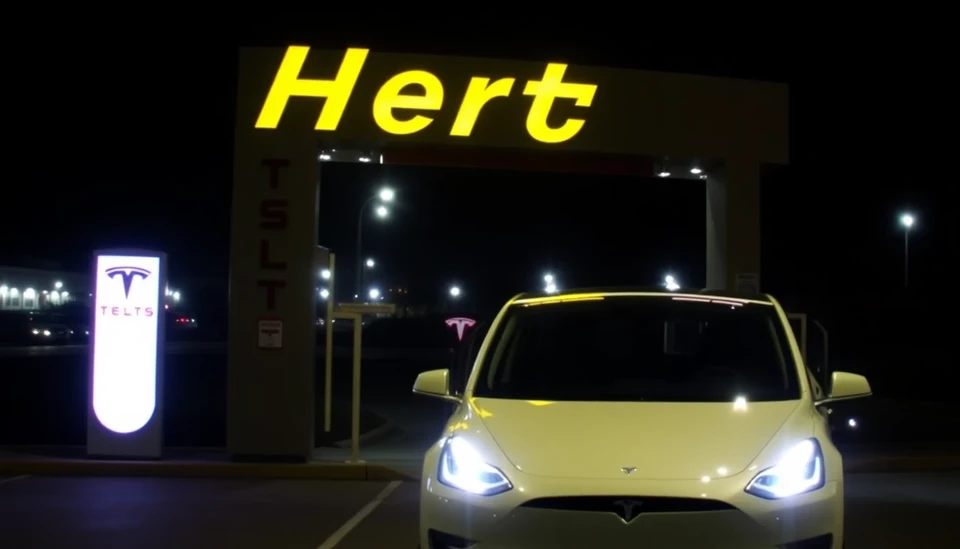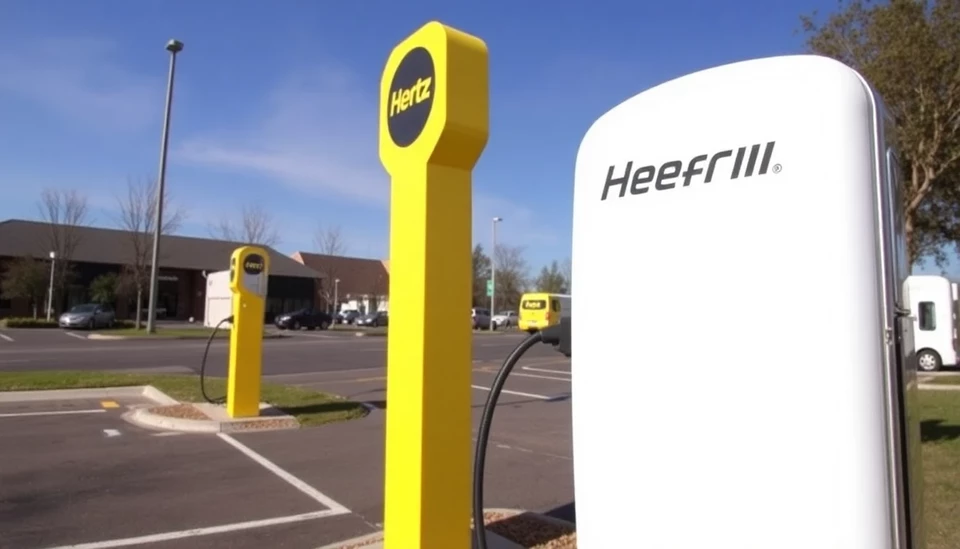
Hertz Global Holdings Inc., the well-known car rental giant, has reported disappointing earnings that fell short of analysts' expectations, primarily due to escalating losses tied to its once-ambitious investment in Tesla electric vehicles. The company has found itself grappling with the repercussions of a strategic move that many had initially applauded.
In a financial report released this week, Hertz revealed that it incurred a net loss of $65 million for the third quarter of 2024. This stark contrast to previous expectations has raised concerns among its investors. Analysts had anticipated a narrower loss or a potential profit, as the company had made significant strides in its recovery from the pandemic-induced slump. However, increased costs associated with maintaining and renting its fleet of Tesla cars have contributed to the broader financial strain.
A key factor in Hertz's disappointing performance lies in the increasing operational costs and fleet management challenges linked to its substantial order of Tesla vehicles. While Tesla's electric cars have seen a boom in market appeal, Hertz's experience has been less than favorable. The company has encountered difficulties in managing its electric vehicle inventory effectively and addressing maintenance challenges that have added to its expenses.
Moreover, Hertz's ambitious plans to transition to a predominantly electric fleet haven’t materialized as smoothly as anticipated. Despite the initial enthusiasm surrounding its partnership with Tesla, the reality of logistics and customer demand has proven to be more complex, resulting in fewer rentals than initially projected. The company had envisioned a greener strategy that would entice eco-conscious renters; however, the execution of that strategy is now under scrutiny.
In light of these financial setbacks, Hertz is recalibrating its strategies moving forward. Leadership within the company has assured stakeholders that they are assessing the best course of action to stabilize their operations and navigate through the challenging terrain of the current rental market. There are ongoing discussions about possibly diversifying their vehicle options and re-evaluating their commitment to a predominantly electric fleet, amidst a landscape that is rapidly evolving.
In response to the investor backlash, Hertz's executives emphasized that while the commitment to electric vehicles remains a priority, they are more committed than ever to ensuring the long-term sustainability of the company. The board is looking for ways to improve operational efficiency, reduce costs, and invest strategically in vehicles that will complement customer preferences.
As the automotive market becomes increasingly saturated with electric vehicle options, Hertz is not alone in facing challenges. The company is part of a larger trend among rental car agencies trying to align with the growing consumer preference for sustainable options while managing the volatility that comes with shifts in supply and demand.
Looking ahead, all eyes will be on Hertz as it navigates through this precarious period. Stakeholders are eager to see how the company adapts its business model and whether it can regain momentum in the increasingly competitive car rental market.
As of now, Hertz's stock continues to reflect uncertainty, with investors closely monitoring the company’s next moves and its capacity to return to its previously projected growth trajectory in a highly competitive environment.
In summary, Hertz's recent financial results underline the complex challenges involved in a significant shift toward electric vehicles, the impact of strategic investments, and the necessity of adapting in the face of unpredictable market dynamics.
#Hertz #Tesla #ElectricVehicles #CarRental #FinanceNews #InvestmentStrategy #MarketTrends
Author: Samuel Brooks
